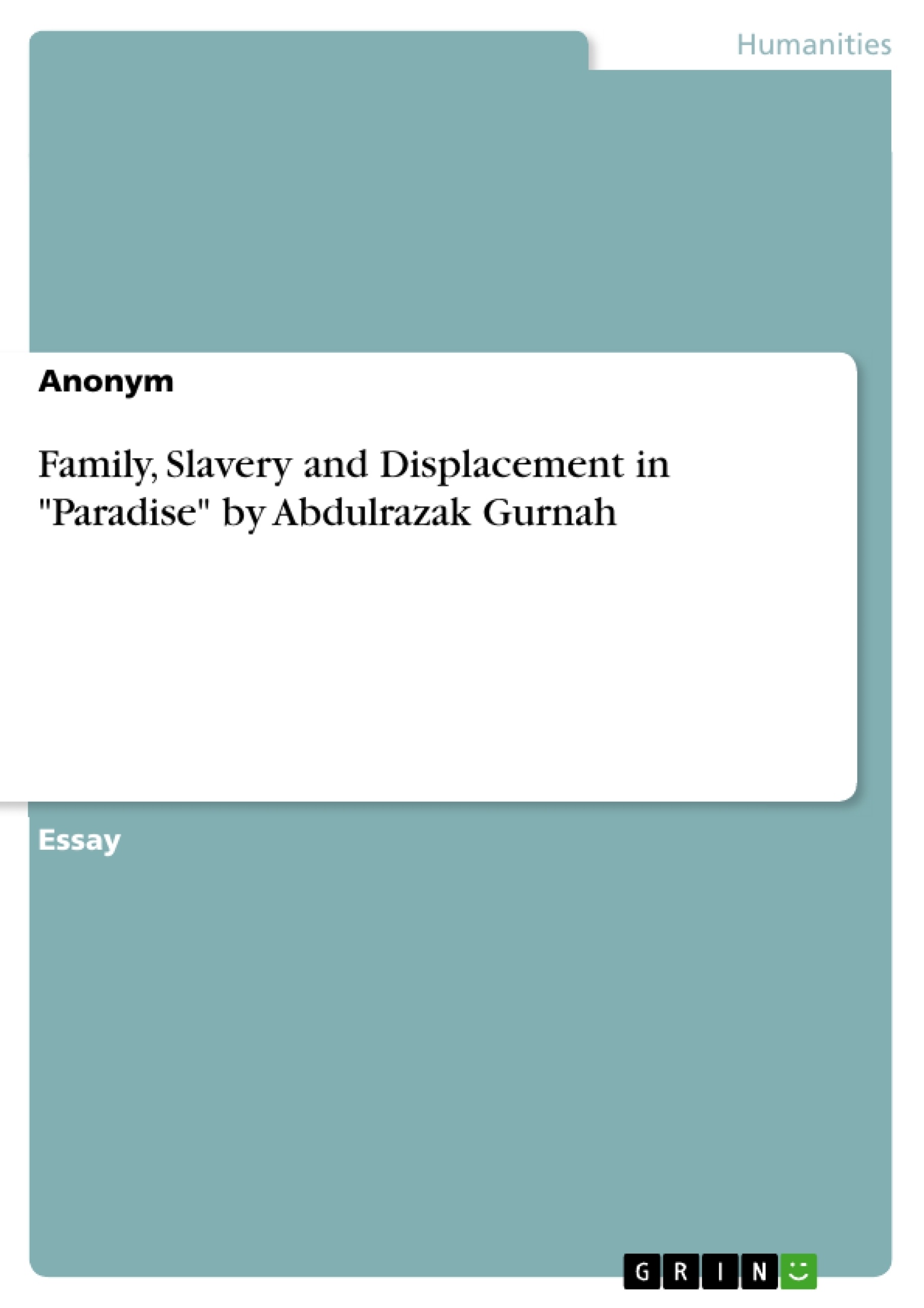This paper deals with the themes of patterns of travel and mobility, the role of religion and Islam and the role of narrator/family/slavery and his displacement. The author Abdulrazak Gurnah is a member of the Muslim-Arab minority in Zanzibar with Swahili as his mother tongue. He arrived in Great Britain as a refugee in 1968.
The book "Paradise" got published in 1994 has 447 pages and is narrated from an authorial perspective. This novel unfolds the tale of Yusuf. Left by his father to settle debts, Yusuf becomes the ward of the Arab merchant Aziz. The narrative follows their trading expeditions, offering insights into the interior of Africa during the era of German colonialism in East Africa. Beyond the theme of travel, the novel delves into crucial subjects such as identity development, slavery, and the concept of "displacement."
Each topic has been written in the form of an essay and works closely with the novel "Paradise". Excerpt from an essay that deals with the topic of "Patterns of Travel and Mobility in Paradise": This essay seeks to investigate the patterns of travel and mobility in Paradise by alluding to a number of examples from Paradise. It is absolutely crucial to address this topic since it is omnipresent in the novel. There are, in fact, a number of patterns of travel and mobility evident in the novel. Paradise is wrapped in several different narrative models that imply movement.
For the most part, the trade and movement have a strong bond, as the merchants can move freely with their caravans and visit the most remote places in the interior. Furthermore, an internal journey, or rather a metaphorical travel, takes place, namely the personal journey of Yusuf. He grows up during his travels from a child to a man.
Another pattern of travel and mobility is the condition of the diaspora because many people have been displaced. For example, there are Europeans, Arabs, or even Indians who came to Africa for specific reasons, such as economic or political reasons. In addition, many characters represent travelers, slaves, slave traders, explorers, or emigrants whose borders are constantly shifting or even disappearing. Besides, many of the characters are caught between clashing cultures and territories. Yusuf's identity is also altered when he is torn from his parents and home and made a slave.
Inhaltsverzeichnis (Table of Contents)
- Patterns of Travel and Mobility in Paradise
- The role of Religion and Islam
Zielsetzung und Themenschwerpunkte (Objectives and Key Themes)
This essay explores key themes within Abdulrazak Gurnah's novel "Paradise," focusing on the complex interplay of identity, displacement, and the impact of colonial influence. The analysis examines how travel, religion, and cultural collisions shape individual and societal landscapes within the context of East Africa.
- Travel and Mobility
- Identity Development
- Religious Influences
- Colonialism and Cultural Clash
- The Concept of Paradise
Zusammenfassung der Kapitel (Chapter Summaries)
Patterns of Travel and Mobility in Paradise
The first chapter focuses on the various patterns of travel and mobility presented in "Paradise." It highlights the importance of trading expeditions, slave trade, and individual journeys of self-discovery. Yusuf's journey from childhood to adulthood is emphasized, along with the impact of his displacement and the search for identity within a complex cultural landscape.
The role of Religion and Islam
This section examines the complex role of religion, particularly Islam, within the novel. The chapter explores how Islam is not only the religion of Arabs but also of other groups in East Africa, including Swahili and Indians. It delves into the critique of Islam, particularly through Yusuf's experiences and his ambiguous relationship with Islamic traditions. The chapter further explores how other characters grapple with religious beliefs and the role of religion in cultural conflict.
Schlüsselwörter (Keywords)
This work explores key themes such as travel, mobility, identity, displacement, religion, Islam, colonialism, cultural clash, and the concept of paradise. It specifically examines the portrayal of these themes within the context of East African society during a period of colonial influence.
- Citation du texte
- Anonym (Auteur), 2022, Family, Slavery and Displacement in "Paradise" by Abdulrazak Gurnah, Munich, GRIN Verlag, https://www.grin.com/document/1418130




